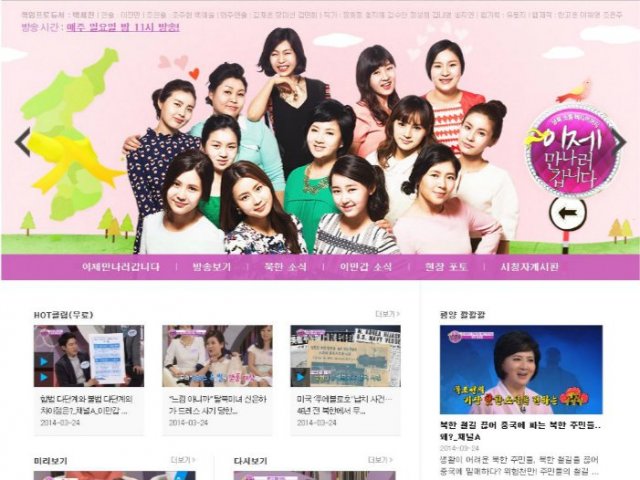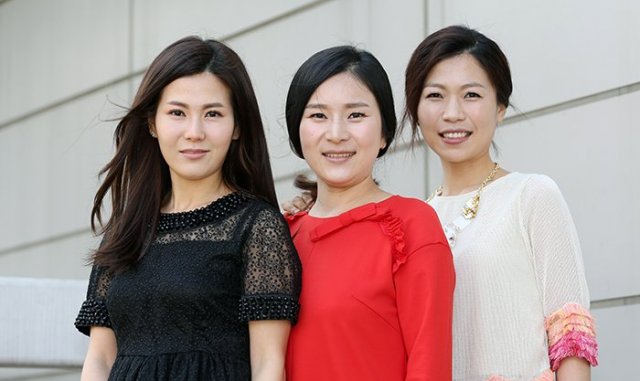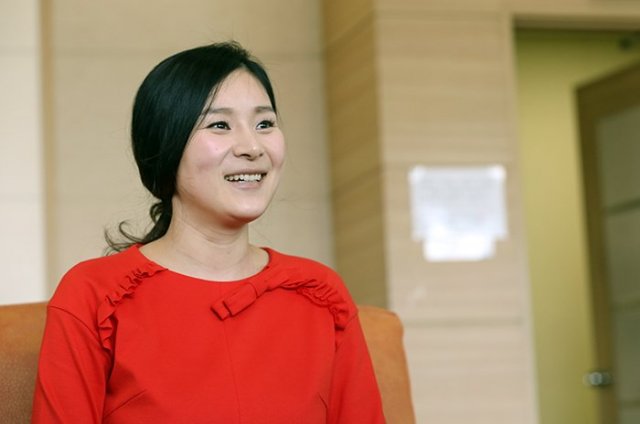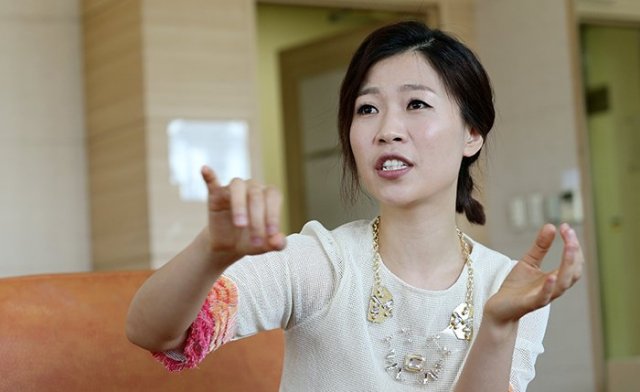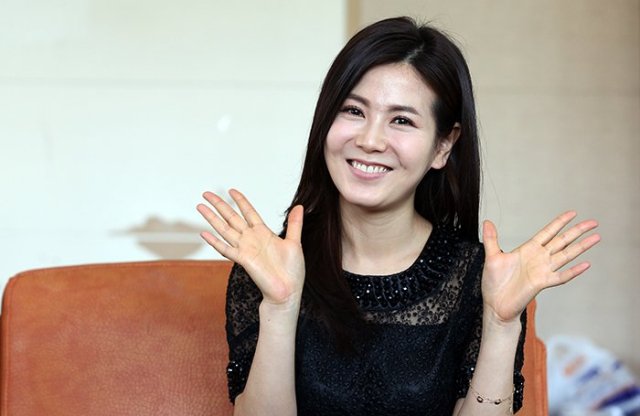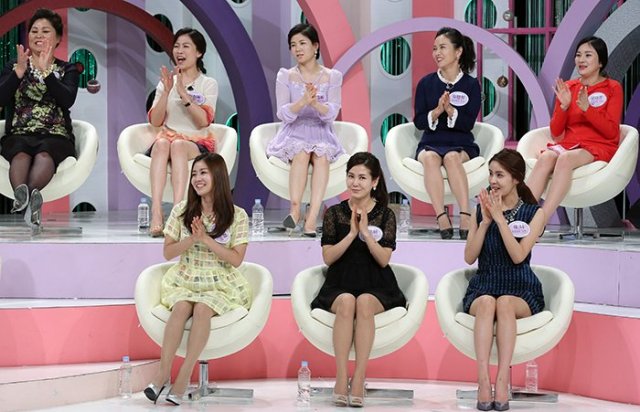Finding happiness in Korea

Whenever news from the North makes headlines, the world is hit by a certain nervousness. Especially for those with an interest in Korea, they contact friends and acquaintances via landline or the Internet each time North Korea news breaks, with worries about peace on the Korean Peninsula.
Modern day South Koreans, however, are unexpectedly indifferent about these exchanges. Their somewhat uneager response is due not only to frequent reoccurrences. Also, time has taken away many of those with vivid memories of the Korean War (1950-1953). The younger generation has grown up amid material abundance and is busy living in the present. When asked about reunification, these young people may show no interest in the subject, or even worry about a possible negative aftermath.
In an era when over 25,000 North Korean defectors live amid the urban hustle of South Korea, finding common ground between North and South can still be a difficult task. Especially for the defectors, adjusting to Korean society is not an easy task. More than 60 years of division has created a difference in the ways of thought and in life, some which lead to misunderstandings and social discord.
A local TV channel has made a program that portrays defectors in a natural light, letting them speak their own thoughts in their own voices. On Channel A's hit show "On My Way To Meet You Now" (I-jae man-na-ruh gab-ni-da, later abbreviated to Ee-man-gab), viewers can learn about common misconceptions about North Korea and hear the stories unravel about the female defectors adjusting to South Korea.
The official website of Channel A's "On My Way To Meet You Now" (I-jae man-na-ruh gab-ni-da)
"Ee-man-gab" first aired on December 4, 2011, telling the stories of numerous defectors, and has become a long-running program of three years, reaching viewers at 11:00 pm each Sunday evening. The program's concept and style was borrowed from an earlier hit show, "Global Talk Show", commonly called Chat With the Beauties, first aired in 2006 on KBS 2 which had foreign women talk about life in Korea as a foreigner.
The talk show panelists on "Ee-man-gab" talk movingly about their own experiences. Their stories depict life back home and the journey of escape told by the women, who make up the majority of the defector population, not only make the viewers want to cry and laugh, but also evoke strong emotions from fellow panelists, too. Hearing innocuous stories of getting hooked on South Korean soap operas or enjoying Choco Pies, viewers see that not even North Koreans are spared the hallyu wave.
The recording set of Channel A's "On My Way To Meet You Now" (I-jae man-na-ruh gab-ni-da) on March 21. (photo: Jeon Han)
One panelist even suggested that it might be the word "honey", or "ja-gi-ya", a term of endearment that gained popularity in North Korea through a TV series, that will break down the system, not armies or weapons.
Kim Jae Hoon, the producer of the show, said that they aim to expose the lives of everyday people, normal North Koreans. "Even panelists from different cities, Pyongyang and Hoeryeong, don't know about their differences in lifestyle. We hope to broaden their understanding, as well as understanding between North and South". Even he confessed that when he joined the show, he thought North Koreans would be different from himself, but discovered that these people are just like him, unleashing dreams that have been kept at bay, finding love and emotions. The scriptwriter simply said that, "This show is the harmony between North and South Korea".
(From left) Shin Eun Ha, Yoon Ah Young andKim JinOk are panelists starring on "On My Way To Meet You Now". (photo: Jeon Han)
Korea.net visited the "Ee-man-gab" recording studio and sat down with panelists Shin Eun Ha, Yoon Ah Young andKim JinOk.
Even to this day, some South Koreans lack an interest in North Korea and many non-Koreans have unfounded fears about North Korea. What words of wisdom would you give them?
Yoon Ah Young: It's the North Korean dictatorship that is scary. The land or country isn't bad. Normal people are just like us, sharing morsels of rice cake even when it's scarce.
Kim JinOk:Frankly, people from the North haven't had a chance to meet many foreigners and would be scared themselves at an encounter. Also, in terms of North Korea in general, people from the capital, Pyongyang, are taught to be wary of foreign opinion and to treat them well. So it would be nice if you could see the difference between the leadership and normal citizens. It's the North Korean people that have suffered from the leadership's threats.
Shin Eun Ha:Although it's easy to think about nuclear weapons and threats, or about the worst dictatorship ever, when thinking about North Korea, it's not like that and there's more to it than meets the eye. Even in the North, children go to school and babies are born. Don't just look at the leaders, but take an interest in the ordinary citizens.
Yoon Ah Young majored in Chinese literature. She dreams of becoming an interpreter. (photo: Jeon Han)
Life in North Korea
Yoon:Born and raised in Hamgyeongbuk-do (North Hamgyeong Province), I lived there for 17 years. My father, having been born in China, was under constant surveillance. I had limited choices when choosing extracurricular activities at school and there were limits as to what I could dream of doing. During the food shortage in 1998, our family decided to defect.
Kim:I went to school in Chongjin, Hamgyeongbuk-do, near the East Sea, until I became 15. I never realized any excessive surveillance while growing up. I felt free to do as I wanted and went out on dates without any regard to possible punishments from the teachers. Just before defecting, my father, who ran a trading company, was charged with treason and funding revolutionaries. We somehow managed to pull a few strings and have the capital punishment cut down to 15 years in a labor camp and then cut down even further due to illness. Sensing danger, my father asked if we should move to China. I suggested moving to South Korea, feeling closer to the people here due to the South Korean shows I frequently watched. It started off just as if we were going on a picnic. Soon, however, we discovered perils after crossing the Dumangang River.
Shin:I was in North Korea until the second year of middle school, yet I don't have many recollections due to my young age.
Kim JinOk majored in film and performing arts. She is now an actress and TV personality. (photo: Jeon Han)
The Escape
Yoon:In China, I worked in diners and the sort, in pretty poor working conditions, with the danger of being repatriated to North Korea always hanging over me. I reached South Korea in July 2004. My mother was already in South Korea. I had become a victim of human trafficking and spent six years in China, sold as a babysitter.
Kim:My father and brother escaped with me on the journey though China and Southeast Asia for one year and two months. In fact my father managed to acquire a forged South Korean passport and travelled by ship to South Korea. The officials didn't realize he was from the North until he claimed so himself and was passed on to the related authorities. My mother, who hadn't been able to escape with us, was able to join us seven years later. I travelled to China myself to meet her crossing the Dumangang River.
Shin:I had escaped with my parents and sister. We spent six years in the woods, away from prying eyes. My sister was my best and only friend. We suffered from a lack of identity, mistreatment at work, false accusations of theft, et cetera. We were even repatriated once. It was a terrifying moment when my father had to wade through the Mekong River, infested with alligators, to free from the brush the boat on which our family was traveling.
Shin Eun Ha majored in nursing. She wants to become a nurse. (photo: Jeon Han)
Adjusting to life in South Korea
Yoon:In a socialist country, your decisions are made for you by the country. You follow passively. In a capitalist country, however, you have to proactively make your own choices, which was difficult. The market economy's competitive tendency was also a hurdle. Although I came to South Korea in my early 20s, I was, age wise, the equivalent of a newborn by South Korean standards. The government's support helped greatly in stabilizing my life, but after shifting from day laboring to waitressing, in 2008 I felt like I needed a change for a better future. I was able to enter college in 2009. I learned the basic fundamentals of South Korean society and life at Sogang University. Utilizing my survival Chinese acquired during my stay in China, I was able to major in Chinese literature and slowly adjust to society.
Kim:I have dreamt of becoming an actress ever since my time in North Korea. I felt the power of culture though the hallyu wave striking Southeast Asia, which was part of my escape route. Even in Korea, I wondered how to realize my dream and I entered a Korean middle school. I learnt the meaning of "adjusting" for the first time. I wasn't able to get along with my classmates and had a feeling of extreme loneliness. I almost took the college entrance exam, to skip high school. Luckily, the high school I was about to enter had a theater club as an extracurricular activity and I eagerly participated in the club. I was committed to it like an art school student, writing original plays and winning awards, which all helped boost my confidence. My teachers recommended Chung-Ang University's School of Performing Arts and Media. At school, I met the now popular Kim Soo-hyun when he was my junior classmate. It makes me smile now. I remember having him pour me a drink because I was his senior and also asking another junior to look after him on his way home.
Shin:It's been 15 years since I left North Korea as a middle school student and have been living in South Korea. Adjusting to the people around me was the hardest thing. When we first arrived, the government grant money was tight for a family of four. My father suffered under the stigma of being a North Korean defector and wasn't able to secure a job for two years, even as a day laborer. We were financially challenged in the capitalist world. I managed to enter Chung-Ang University's College of Nursing through a special admission process for defectors. However, catching up with my peers, with years and years of hard work and competition under their belt, wasn't easy. Once, I even burst into tears in the parking lot after a test. Still, I managed to graduate last year.
On the set of "On My Way To Meet You Now", Shin Eun Ha (front, middle), Yoon Ah Young (back row, far right) andKim JinOk (back row, second from left) talk about their new life in South Korea. (photo: Jeon Han)
Dreams for the future
Yoon:Currently, I'm the mother of a nine-month-old baby, but after the baby grows up a little, I want to study a bit more about North Korea and become a Mandarin-to-Korean interpreter in the future, following-up on my college education. I am confident that I will have a chance to work in an unified Korea.
Kim:Against all the odds, I plan to continue my life-long dream of becoming an actress. While some may say that, since I came from the North or since I don't fit the stereotype of an actress, it is impossible, I refuse to yield to the odds. I'm determined to try my best and succeed. I played the role of a North Korean table tennis player in the 2012 movie "Korea". It was about the process of forming a unified Korean table tennis team.
Shin:I graduated nursing school last year and wish to return to that job when my TV career is over. I had a lot of help during my escape journey from North Korea and would like to be able to give back to society in the future. My role at "Ee-man-gab" did attract attention and offers from the entertainment world, but I don't think it's my calling.
Further on...
Has "Ee-man-gab" brought about any changes in the general public's perceptions of North Korean defectors?
Kim:My cousin works at a South Korean company and wasn't able to reveal her true identity. However, her colleagues seemed to enjoy the show, so she decided to go clean. Everyone was so chill about the fact that she was from North Korea. She was surprised. They even coolly asked her which province she was from. So that was an incident that made me feel the power of this program.
Do you think the North Korean population would adjust well to a unified Korea?
Kim:As you can guess from the fact that they enjoy Korean TV shows, they are ready to absorb any outside culture. I think they may be even more open to new ideas than South Koreans or other people.
South Korean prejudice about dating in North Korea
Kim:When people find out that I'm from the North, they usually ask me if North Koreans feel like they have to marry each other after only holding hands, which is utterly ridiculous. They feel free to date anyone they wish and many marry for love, although some still have arranged marriages.
Differences in street food culture
Kim:North Korea doesn't have much of a street food culture. Only a few menu items, like tofu, rice and synthetic meat, was available in the marketplace. When I first saw tteokbokki I was so surprised. Why would anyone douse precious tteok, or rice cake, in gochujang, the red pepper paste? It should be dipped in honey or sugar. Snacks like popcorn are also popular snacks in North Korea. You do have to bring your own corn, though, and even firewood, to get them popped.
Differences in student-teacher relations
Kim:When class starts in North Korea, all the students rise when the teacher enters the classroom. In South Korea, however, the students continue to chat freely with each other until the teacher calls for attention. By now, I've adjusted so much that I, too, find myself peering into my phone during class in front of the professor.
Differences in child rearing
Yoon:As parents of a nine-month-old, my husband, a South Korean, and I sometimes have different thoughts about child rearing. In Korea, all parents try to give the very best to their children and try to emulate what other parents offer their children. I tend to differ in this part because I have my own standards and I stick to them even when they differ from that of other parents. I also place preparation for my retirement as a priority. Giving the child space to become independent is also important. Other than that, I don't find any cultural differences. When the baby was first born, I found myself at a loss because I only knew nursery songs from North Korea, which are a bit ideological, revolutionary and which praise the Kim clan. I had to buy South Korean nursery books to study, unlike the South Korean mothers who just naturally knew the songs.
Any thoughts on how the government could help further?
Yoon:Economically, the government grants help a lot. It would be nice to have a variety of programs to help bridge the gap in North and South Korean peoples' perceptions.
Kim:Instead of funding all kinds of defector organizations, concentrating on one organization that could effectively help us might be one thing. The Hanawon, the Settlement Support Center for North Korean Refugees, could try to include some practical job training instead of trying to teach us basic survival skills.
These people had to leave their hometowns due to reasons that could not be helped and which were beyond their control. They still have affection for the land and carry themselves with pride as true Northerners. However, they are also greatly appreciative of the new-found freedoms here in the South. They are indebted to the Southern government and are grateful for the opportunity they have, which many of their Northern compatriots are denied, to live their lives to the fullest in a free and prosperous Korean nation.
By Paik Hyun, Jeon Han
Korea.net Staff Writers
[email protected]
Source from :Hancinema
